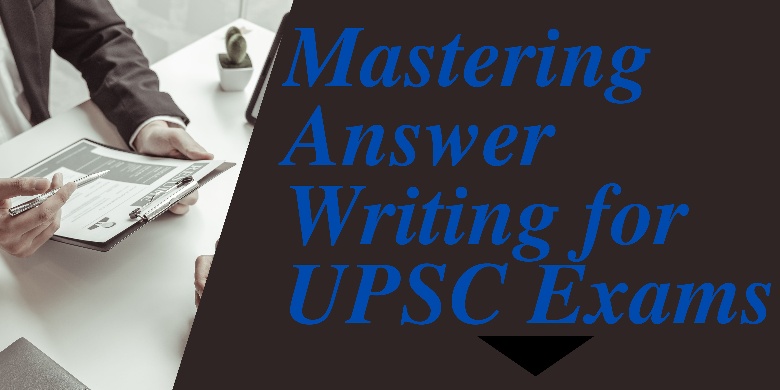
Mastering Answer Writing for UPSC Exams
In the ever-evolving landscape of competitive exams like the UPSC (Union Public Service Commission) examinations, mastering the skill of answer writing is pivotal.
The UPSC exams are renowned for their rigorous evaluation process, where candidates are not just tested on their knowledge but also on their ability to present that knowledge effectively. To excel in these exams, it's crucial to develop a comprehensive understanding of exam strategies, and this article aims to provide valuable insights into the art of answer writing for UPSC exams.
Understanding the UPSC Examinations
To effectively navigate the UPSC (Union Public Service Commission) examinations, it is essential to gain a profound understanding of their structure and nuances.
The UPSC examination pattern, includes the prestigious Civil Services Examination, the Indian Forest Service Examination, and the Engineering Services Examination, among others.
These assessments encompass a multi-tiered selection process, prominently featuring the Preliminary Examination, followed by the Main Examination, and culminating in the crucial Personality Test or Interview.
Diverse Range of Examinations
Multi-Stage EvaluationPreliminary Examination
Main Examination
Personality Test/Interview
The Significance of Effective Answer Writing
Answer writing in UPSC exams is not merely a means of conveying information but a skill that can significantly impact your scores. The UPSC examiners evaluate answers holistically, considering factors such as clarity, depth of knowledge, analytical ability, and presentation style. Hence, mastering answer writing is paramount for success.
Key Strategies for Effective Answer Writing
1. Understand the Question
One of the most common mistakes candidates make is misinterpreting the question. Before you start writing, take a moment to dissect the question. Identify keywords, directives, and the core theme. This ensures that your answer is relevant and directly addresses what is being asked.
2. Organize Your Thoughts
A well-structured answer is easier to read and comprehend. Start with an introduction that provides context and a brief outline of your response. Follow this with a logical flow of ideas in the main body, and conclude with a concise summary.
3. Clarity and Conciseness
7 months ago UPSC
